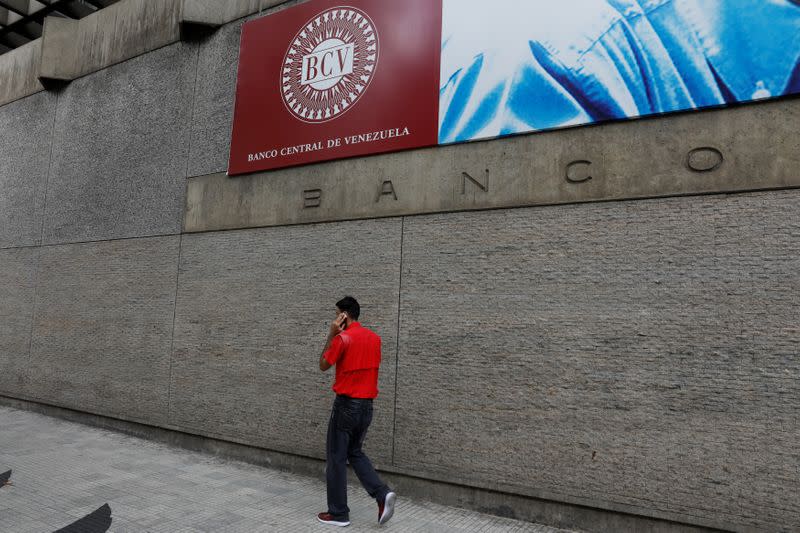CARACAS (Reuters) – Venezuelan central bank lawyers said on Thursday that opposition leader Juan Guaido rejected a proposed deal to buy coronavirus vaccines in Britain, a statement the opposition considered false.
The lawyers said the bank – whose board was appointed by President Nicolas Maduro – requested support from an ad hoc central bank board appointed by Guaido to transfer $ 120 million in frozen funds in Britain to Gavi, an alliance that aims to improve vaccine for poor countries Access.
“Due to international sanctions, the impacts of the COVID-19 pandemic in Venezuela have worsened, and President Maduro’s government has failed to make payment to Gavi to guarantee access to COVID-19 vaccines by any other means,” say the lawyers central bank in Zaiwalla & Co said in a statement.
The opposition argues that cutting Maduro’s access to funds is justified because he would use the money for corrupt purposes, rather than helping Venezuelans suffering from a humanitarian crisis and economic collapse.
Guaido is recognized by dozens of countries, including Britain, as Venezuela’s legitimate leader following Maduro’s disputed reelection in 2018. Both sides are fighting a legal battle in London over which side will have access to more than $ 1 billion Venezuelan gold stored at the Bank of England.
“I want to highlight the false nature of the information released by the Maduro regime,” wrote Miguel Pizarro, representative of the interim government of Guaido. “We reiterate our willingness to find solutions to face the crisis that Venezuelans suffer today”.
The central bank aligned with Maduro had already sought access to funds to help combat the impacts of the coronavirus. The opposition said in early January that it had reached an agreement to participate in COVAX, one of Gavi’s facilities to supply vaccines, but gave no details.
Maduro said Venezuela would soon receive 10 million doses of the Russian Sputnik V vaccine. The South American country reported about 117,811 cases of coronavirus and 1,084 deaths.
(Reporting by Vivian Sequera in Caracas, Writing by Corina Pons and Mayela Armas, Editing by Marguerita Choy and Grant McCool)
